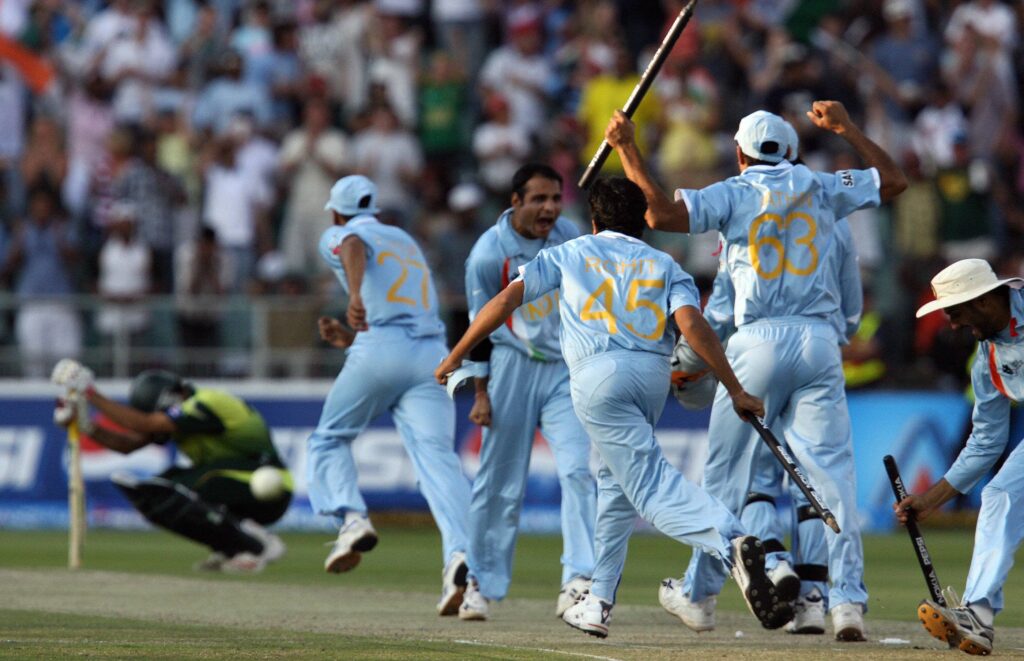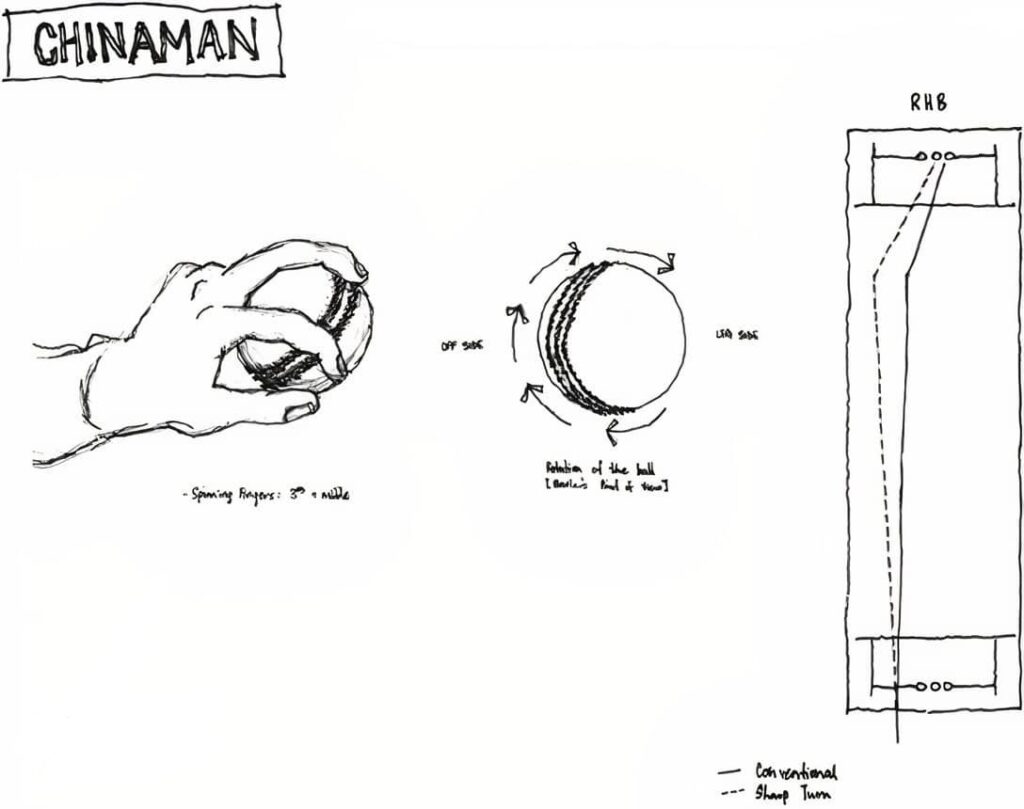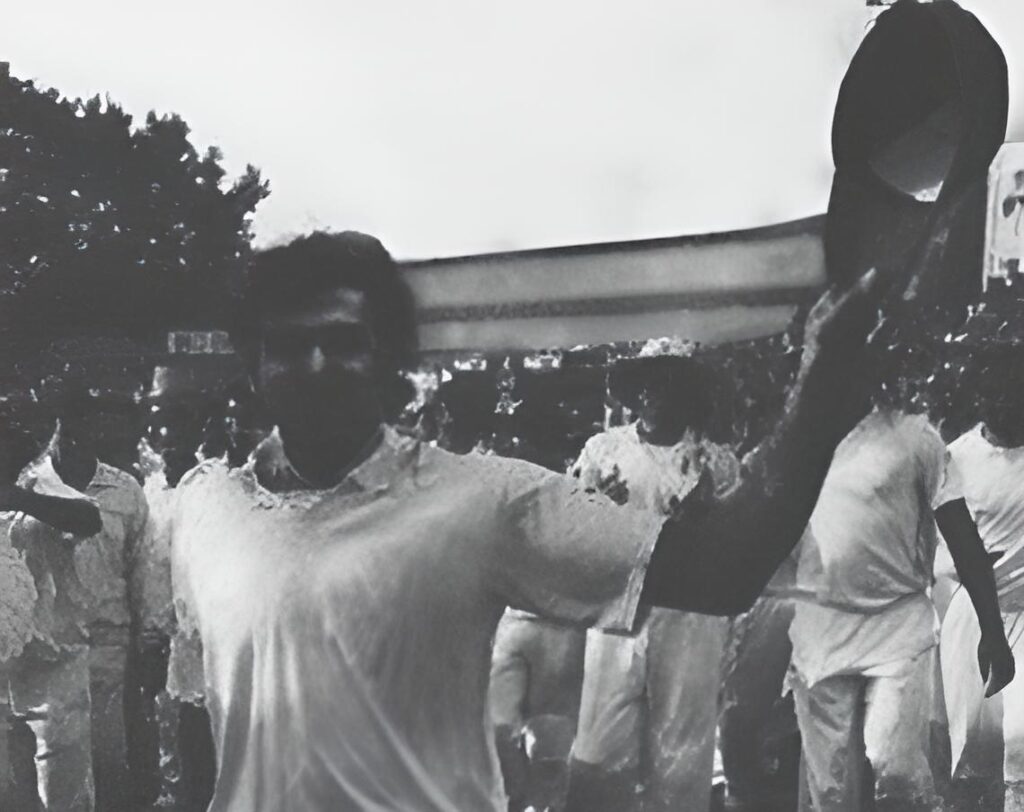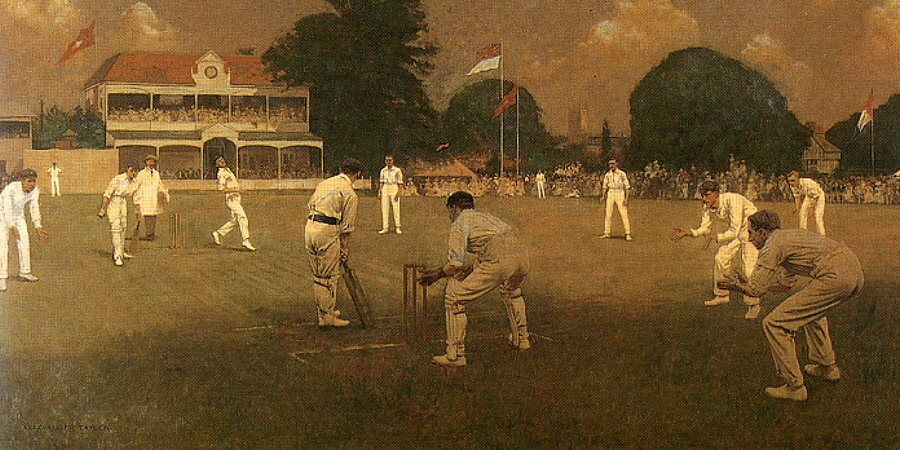The love affair between cricket and this reader began early on. The roots were watered and tended to by a father who loved few things as much as he loved the sport. Victories in anything, you see, are tiny miracles that have fate, talent, and timing conspiring together to make something extraordinary. It was one such night of victory that I, the reader, fell in love with the sport, a certain final that India won.
But there was an older love affair the reader has had, one with the quiet books in a library, and the colorful comics in a bookstall. And naturally, he wanted something more. He long desired to read a cricket novel where cricket is not some subplot relegated to the corners like some frivolous tea party you wouldn’t really mind missing out on. He wanted to read something that gave the same thrill as reading the live commentary of a game hanging on the threads of fate. He wanted something extraordinary. He wanted a victory, one that he found in the pages of this book.

And when Karunatilaka describes the finale between Sri Lanka and Australia in the 1996-97 World Cup, he felt the same euphoric thrill that makes you love life a bit more, the kind of thrill that gives you second thoughts about the impossibility of what you experienced right now.
Sri Lankans across the world stand taller, believing that now anything is possible. The war would end, the nation would prosper and pigs would take to the air.
shehan karunatilaka, chinaman: The legend of pradeep mathew
Why the Need for a Cricket Novel?
Cricket in literature isn’t a new phenomenon. Not quite common, sure, but not new either. What’s been lacking, however, and something a cricket lover can’t help but desire too, is the sport being a critical part of the overarching narrative, the Atlas to bear the weight of the globe if you may. This particular lacking is generously compensated through this vivacious, sprawling piece of literature.
But why this desire in the first place, one might wonder? Is cricket as important as politics or societal hierarchies or interpersonal relationships or one’s identity? Arguably yes. Sometimes even more.
Sports can unite worlds, tear down walls and transcend race, the past, and all probability. Unlike life, sport matters.
shehan karunatilaka, chinaman: the legend of pradeep mathew
Onto the Story…
It’s the story of an aging sports writer, Karunasena, to seek out a mysterious spinner who is, for all practical purposes, dead. There are no records of him, no trail to find where he might be now, nothing. All that exists is memory. Memory of watching him bowl some of the greatest spells in the history of cricket. It’s this chasing the invisible that forms the center of this mad frenzy of a novel.
But the story is also Karunasena’s. It’s his flaws, his addiction to alcohol, his philosophy that switches from nihilism to optimism in the blink of an eye, his commentary on those around him, his obsession with the sport he devoted his life to, and most of all, his humane unreliability that makes this novel what it is.
If all this is scaring you, don’t worry, for even if you’re someone new to the world of cricket and only thinks the word to mean that little chirpy insect, you wouldn’t be lost here. While you’ll certainly enjoy Karunasena’s ramblings more if you’re a lover of the sport, Shehan keeps an eye out for the newbies to the game as well.

In a section at the very beginning of the novel, rather wittily titled “Sales Pitch”, he goes so far as to say that if you’ve never seen a cricket match; if you have and it has made you snore; if you can’t understand why anyone would watch, let alone obsess over this dull game, then this is the book for you. Apt.
The Birth of a Cricketing Nation
All of this is well and nice, but what truly makes this novel a chef-d’œuvre in the world of cricket literature is the parallel metaphor of Sri Lanka.
It’s a country that’s faced one adversity after another. To then equate the Sri Lankan cricket team to the country they represent, to extrapolate the struggles within the cricketing world to give a commentary on the racial and caste divides that permeate the country, is nothing short of genius. It’s a country you’d be hard pressed to dismiss like some stray pebble on a rocky terrain, and yet it’s a country that would surprise you time and time again.
But the metaphors for Sri Lanka don’t stop there. Oh no, not even close! This is something you’ll notice often in Shehan’s stories. Even when Sri Lanka is not the opening batsman, it’s always there in the stadium, if only as a viewer. And, in a way, The Legend of Pradeep Mathew is, in a way, the legend of Sri Lanka too.
Like the elusive mystery spinner (I wonder if that description harks back to the supposed mythical greatness Lankan politicians have often talked about in the past), the country too has lofty ambitions but is often stuck up in conflicts within itself. Like Pradeep, the country has a lot of promise and talent, but due to numerous factors, it never quite reached all the places it could’ve gone. Like him, the nation has a diverse ethnic background, something that has painted the country red too often. And yet, like him, the country has survived, persevered in the face of impossible conditions.
A Cricket Autobiography

Outside of Chinaman, every other book on cricket adorning my shelves is non-fictional, most of them autobiographical. Biographies are to cricket what awards are to movies, there are simply too many of them. Keeping this in mind, it’s hard not to wonder if Shehan’s work in an indirect ode to the numerous biographies that have been written over the years. After all, from the first-person narration to photographs and sketches that populate the pages of this book, it would come across as an autobiography to someone just glancing through its pages.
It’s not just a stylistic choice, however. It serves to lend the book an air of authenticity, what with the narrative mired with real events and characters, that’s hard to shake off. You’re not reading yet another fictional narrative, you’re reading the history and life of a nation and its people. And all of that: it’s very much real. Therefore, by appealing to a sense of factuality in us, Shehan adds more life, more reality into his already phenomenal work.
Wrapping Up…
Coming back to the age-old question, why should you read this text clocking over 500 pages? Let’s try and give a pointless answer to this pointless question, shall we?
You love politics? Read this book.
You find intergenerational conflicts interesting? Read this book.
You find the unreliability of fictional narratives compelling? Read this book.
You want to know more about Sri Lanka (and its literature)? Read this book.
You enjoy cricket (the sport, not the insect)? Read. This. Book.
I rest my case.


